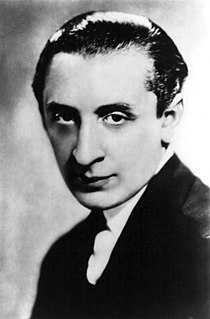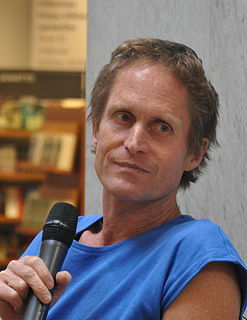A Quote by Helen Rowland
Falling in love consists merely in uncorking the imagination and bottling the common sense.
Quote Topics
Related Quotes
Mathematics is often erroneously referred to as the science of common sense. Actually, it may transcend common sense and go beyond either imagination or intuition. It has become a very strange and perhaps frightening subject from the ordinary point of view, but anyone who penetrates into it will find a veritable fairyland, a fairyland which is strange, but makes sense, if not common sense.
For, what is order without common sense, but Bedlam's front parlor? What is imagination without common sense, but the aspiration to out-dandy Beau Brummell with nothing but a bit of faded muslin and a limp cravat? What is Creation without common sense, but a scandalous thing without form or function, like a matron with half a dozen unattached daughters? And God looked upon the Creation in all its delightful multiplicity, and saw that, all in all, it was quite Amiable.
Poets often describe love as an emotion that we can't control, one that overwhelms logic and common sense. That's what it was like for me. I didn't plan on falling in love with you, and I doubt if you planned on falling in love with me. But once we met, it was clear that neither of us could control what was happening to us. We fell in love, despite our differences, and once we did, something rare and beautiful was created. For me, love like that has happened only once, and that's why every minute we spent together has been seared in my memory. I'll never forget a single moment of it.
Falling in love has been greatly overrated. Falling in love consists of 45 percent fear of not being accepted, 45 percent manic hope that this time the fear will be put to shame and a modest 10 percent frail awareness of the possibility of love. I don't fall in love any more. Just like I don't get the mumps.
I have been in many countries, and I have found there people examining their own love of life, sense of peril, their own common sense. The one thing they cannot understand is why that same love of life, sense of peril and above all common sense, is not invariably shared among their leaders and rulers.
What liberates the imagination is the sense that work in its theory and practice holds aesthetic possibilities, that jobs can be elegantly conceived and gracefully done. This sense of beauty unlocks feelings of pleasure and love and breaks down the barrier between worker and work and commit to work not merely the "thinking" consciousness but the full resources of mind.






































